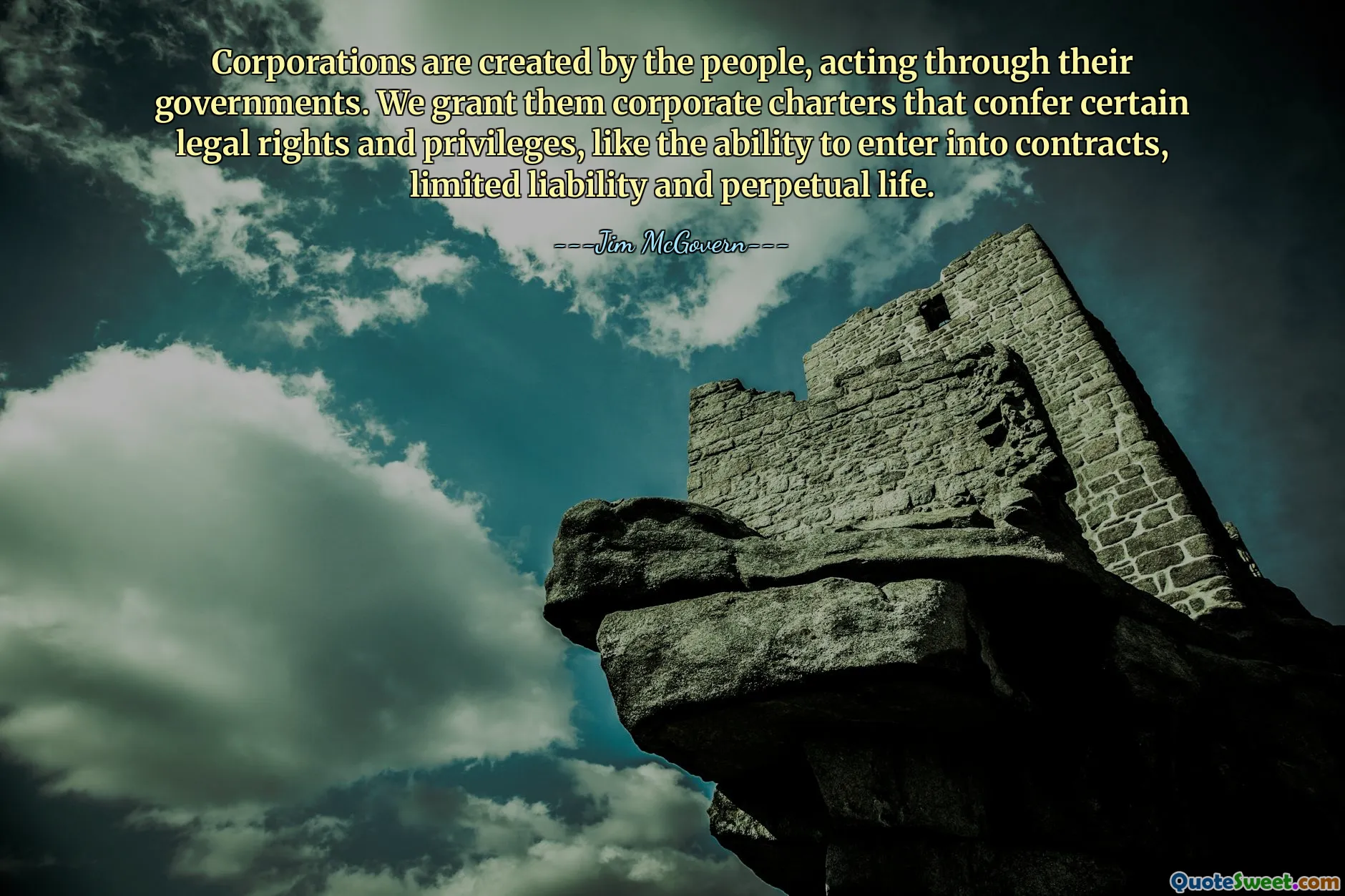
Corporations are created by the people, acting through their governments. We grant them corporate charters that confer certain legal rights and privileges, like the ability to enter into contracts, limited liability and perpetual life.
This quote underscores the foundational nature of corporations as entities that are fundamentally created and governed by human decisions and societal structures. It highlights the role of governmental authority in granting corporations legal existence and specific rights, positioning them as extensions of the collective will of the people. This perspective prompts us to consider the democratic responsibility in shaping corporate power and influence. Corporations are often perceived as autonomous entities driven primarily by profit motives, yet their existence, privileges, and limitations are all products of legislation and societal consensus. It raises important questions about the balance of power between citizens and corporations, especially in areas such as economic influence, political lobbying, and social responsibility. Recognizing that corporations are created by societal decisions emphasizes the potential for democratic oversight and reform—underscoring that the rights and privileges accorded to them are not inherent but granted. Such understanding fosters a more informed debate on how these entities should operate within society, ensuring that their influence aligns with public interests and ethical considerations. It also invites reflection on the significance of legal frameworks in shaping corporate roles, rights, and responsibilities. Overall, the quote reminds us of the human agency involved in establishing and regulating corporations, urging continuous vigilance and participation in their governance.











